FutureSheLeaders (17)
In this episode of FutureSheLeaders, we meet Freshta Saadat – a young woman from Afghanistan whose life story shines with courage, hope, and the vision of women’s leadership.
Freshta is a teacher of young children, a passionate writer, and the founder of “My Book for You” library-a place that has awakened many minds and planted the seeds of knowledge in her community.
Her greatest dream is to one day become a powerful journalist, bringing the voice of justice and peace to the world. She believes that every child, every woman and man, at any age, deserves to hold a pen, to read, to write, and to express the truth of their hearts.
In this heartfelt story, Freshta speaks of her challenges and resilience, and of her dream for a more peaceful and equal world.
Join us to be inspired by Freshta’s journey, her voice, and her vision of women’s leadership.
Royesh: Freshta, greetings to you-and welcome to the FutureSheLeaders series.
Freshta: Hello, teacher. Thank you, may you stay well. Hopefully, we’ll have a joyful and meaningful session together.
Royesh: You are the second person from your community to join this program. I had told Hamida it would be wonderful if she could open the way for others-and she opened the way for you too.
Freshta: Yes, teacher. In fact, Hamida was part of the inspiration that encouraged me to join this program as well.
Royesh: As the saying goes, “When one melon sees another, it takes on its color.” I think when you saw Hamida, you also felt excited and thought, I, too, have a story to share.
Freshta: Exactly, teacher. Since Hamida spoke so beautifully, I also decided to speak with you.
Royesh: And you’re sure you can also speak beautifully?
Freshta: Yes, teacher.
Royesh: So, tell me-what is the most beautiful thing you want to say?
Freshta: The most beautiful thing… I don’t know where to begin. As an introduction, I’ll say this: a few weeks ago, I read a book called Man’s Search for Meaning. It was written by someone who lived through the darkest times-he survived the concentration camps. In his book, he wrote: We must raise human beings, not just engineers, doctors, or teachers. We must raise human beings.
He said, I saw doctors working hard to destroy us, engineers inventing machines to torture us, and teachers planting despair inside us. From this, I understood: above all, we must raise human beings. When I read that line last week, it struck me deeply. Truly, I thought-nothing else matters. Not engineer, not teacher, not lawyer, not doctor. First of all, we must raise human beings.
Royesh: The meaning of being human has so many layers. And in our times, living as a true human is not easy. Because the moment you want to live as a human being, you realize heavy responsibilities lie ahead. You face tests that separate us from other creatures that are less than human. What do you feel is your greatest challenge? The responsibility that tests you-where, if you succeed, you feel you’ve scored higher in humanity?
Freshta: Honestly, as you said, becoming a true human being in today’s society is very difficult. Since reading that book, the thought never leaves my mind. I am a teacher to small children. And now I feel this responsibility: to raise them as human beings. At the very least, that they do not grow up aggressive. That they learn mutual respect, that they respect parents, and even learn to respect themselves.
When my students are so young, sometimes I get upset and raise my voice. But then I think-this is my test. How much of a human am I? Because a true human cannot harm another. And I ask myself: how much humanity can I live by? I want to act with more kindness, not anger.
What’s interesting is-even the smallest outburst in class gives me guilt until night. It weighs on me. And so I decide that the next day I will treat them with even more kindness.
Royesh: Do you think this feeling comes also from being a girl, from being a woman? Do you feel that because society has often treated you unfairly, you learned-like Luqman the Wise said-to learn manners from the ill-mannered, and humanity from the inhuman?
Freshta: I grew up in a society where even my presence in public was seen as shameful, where men were always considered superior. Even today, there are still people who believe a girl’s true place is only the home and the kitchen. But I believe this: the fact that I give value to myself, and my family gives value to me, is already a big step. And one day, we will prove that a girl is just as capable as a boy.
Royesh: Let me repeat my question from another angle, since you didn’t quite answer it before. How much do you think the inhumanity and unkindness of society-especially toward you as a girl, as a woman-has shaped your sense of humanity? Has it made you feel, I don’t want to be like those who treat me unjustly?
Freshta: It has played a very big role. I don’t want the unkindness I’ve faced to be repeated for the next generation-or at least not for my own students. I want to teach them kindness, not anger or cruelty. So yes, teacher, it has had a very important impact on me.
Royesh: Are you happy with life? Have you seen a joyful side of life?
Freshta: Teacher, life is full of twists and turns. Sometimes it’s hard, sometimes painful, and sometimes full of joy. But personally, I am satisfied with my life. I believe if I keep telling myself life is only suffering, then it will feel like suffering. But I can also make life beautiful for myself. Even reading a book makes life more beautiful. Writing a text can make life more beautiful. I try to enjoy the small moments, and I don’t want to limit life for myself.
Royesh: That may be your effort to see life as beautiful. But in reality, what is it in life that truly makes you happy? As a girl, as a woman in Afghanistan-what gives you a special sense of hope?
Freshta: First, it is my family. My family is the one place where I feel supported. There, I can speak openly, share my dreams, express my thoughts, and no one rejects me. I can even give opinions on big issues, and my voice is heard. That is my greatest source of comfort in life here in Afghanistan.
But what gives me long-term hope are my dreams. The dreams I work for every day and every night, trying new paths to reach them. In the long run, it’s my dreams that keep me hopeful about life.
Royesh: What is this dream that gives you so much hope in life?
Freshta: Everyone has a dream. As you yourself said, a dream is the compass of life. When someone has a dream, it means they’re moving in the right direction. Since seventh grade, I’ve wanted to become a journalist and study journalism. Through school and in the years after, I stayed focused on that goal. I studied subjects that could bring me closer to my dream, I practiced, and I tried every path that might lead me there.
My dream is to become a successful journalist-someone who can carry the voice of justice to the world. My dream is for everyone to live in peace, for every child to have food, water, a pen, and a notebook, and for no mother to live in fear for her children.
Royesh: That is a beautiful dream. A dream that gives meaning to your life. But in reality, such dreams are often attacked by harsh truths. These realities strike at your dream, and if they last long enough, they even turn into limiting beliefs-dream killers. People start to believe, this can’t be changed, this is too hard, this is unshakable. How do you protect your dream in the face of such hard realities, when even your society has accepted them as unchangeable?
Freshta: It’s true, our society is like that. But I believe that one day my dreams will come true. I believe I will make them real. This belief and these dreams are what give me strength. Whenever I feel unmotivated, I ask myself: Freshta, what happened to the girl who wanted to be a journalist? Do you still want it, or have you given up?
And when I listen to that inner voice, I know in my heart I still want it. That’s why I haven’t let go of my dream-because I am still alive, and I am still trying. Yes, the doors of schools may be closed to us, but the doors of knowledge are not. I don’t reduce education to just going to school. For me, it means seeking, discovering, learning. I can learn from home. Even if schools are closed, books are not closed. I can read, I can study-and I will never give up on my dreams.
Royesh: Empowerment is a method, a kind of practice, to discover inner strengths-so you can face harsh realities, turn limiting beliefs into supporting beliefs. How has empowerment helped you? Has it made you feel that when you face tough realities, you can respond not with illusion, but with clarity-that you are strong, not small, not weak, not ready to give up?
Freshta: Teacher, empowerment has played a very important role for me. When I joined the empowerment classes about six or seven months ago, it gave me a completely different feeling. There were many other girls there-we could learn together, read together. That created a new sense for me. And every lesson I study in empowerment feels like a new discovery. Each day I learn something new, and I go deeper into the ideas.
Empowerment has taught me that when I face a problem, I can deal with it logically-not with fear or imagination, but with reason-and find solutions. After joining empowerment, I learned to confront challenges differently. At the very least, I now ask myself questions: How do I face this problem? What are the possible solutions? What are the limitations? Are the limitations greater, or the solutions? If I take this path, how heavy will it be for me?
Now I can weigh these things more clearly, compare them, and choose a smoother, better path for myself.
Royesh: One of the tools of empowerment that helps you face difficulties is forming groups-bringing together people with shared values who can work side by side. Did you form a group? Do you work in a group, or do you practice empowerment individually?
Freshta: Yes, teacher. We formed a group about six months ago. Five of us came together, and with my friends’ agreement, I became the leader.
Before group-building, before I studied empowerment, I thought leadership meant ruling over people-telling them what to do and what not to do. But after learning about empowerment, and after creating our group, I realized that women’s leadership is completely different. Women’s leadership means creating a safe space for growth and collaboration.
At first, because of inexperience, I had a bit of false pride as the leader. I used to tell the girls, you must be there exactly at the time I set. But later, as I studied more about female leadership, I understood it better. Our closeness grew, my false pride disappeared, and we created a very different atmosphere-one where we could grow together.
Now, even when setting our meeting times, we decide collectively. Everyone shares their opinion, and we choose a time that works. I no longer tell them what they must or must not do. Because women’s leadership is truly something very different.
If I talk about our group’s activities-we believe that if we want a more peaceful world, we must begin with ourselves and our families. That’s where we started. First, we united as a group and practiced empowerment together. Then we brought our families into it.
For Mother’s Day, we organized a celebration. Our mothers gathered in our home-we worked together, shared stories, ate cake, and it was such a beautiful day. After that, we gradually celebrated Teacher’s Day, Children’s Day, and Hazara Culture Day. We invited other girls around us, they watched our programs, and we practiced empowerment with them too.
Step by step, we carried out these small activities until, about two weeks ago, my teammates and I established a library called “My Book for You.” We say: Don’t let your books sit in the corner of your shelf gathering dust. So, we launched a campaign: girls brought books they had already read-or their brothers and sisters had read-that were just lying at home, and we placed them in the library so others could benefit.
This project has been very meaningful for us-and also quite successful. With the help of our cluster manager, we have collected 1,500 books so far. Now, the books are officially available to students. They can come, borrow, and share their reflections.
I often tell the girls: When I was younger, my family used to say-if you leave the Qur’an in a corner without reading it, it is a sin. I believe the same about books. If a book gathers dust, unread, it is also a kind of sin. We must bring those books out and place them where others can read and learn from them.
Royesh: What is the name of your group? How many members are in it?
Freshta: We are five members. Our group is called “Mirror of Time.”
Royesh: What specific activities do you do? Tell me a little about how your group is organized. For example, how do you hold meetings? How do you discuss ideas? How do you decide which ideas are the best to act on?
Freshta: We hold our meetings once a week. They are usually at one of our homes, and each time we meet in a different house. The meetings last about an hour to an hour and a half. Before starting, we always share some stories, laughter, and tea together-then we begin.
Most of our group work is focused on learning. The five of us study together. For example, since my English is stronger, I help the others with English. Another member is good at chemistry, so she teaches us chemistry. Others focus on physics, math, and Dari. Each of us takes one subject and works with the rest.
When it comes to new ideas, we prioritize. We look at which idea should come first, how practical it is, whether it’s easy or hard to carry out, and what resources it needs-whether it costs a lot or little. We put all these factors into consideration. Then we rank the ideas from ten down to one, based on priority. After that, we work on making the chosen idea a reality.
Royesh: Has it happened that you chose one idea to carry out, but also had two or three other ideas that could work-so you kept them for later? Do you have a kind of “treasure chest” of ideas you can return to whenever you need something new to do?
Freshta: Yes, teacher. We have many beautiful ideas we haven’t implemented yet-sometimes because conditions weren’t right, or sometimes because we didn’t work hard enough. But yes, as you said, we do have a treasure chest of ideas. For example, with our library project, we plan to hold reading competitions and seminars. We want to give prizes to those who share the deepest reflections on a book. That’s just one example. We have many such ideas waiting to be put into action.
Royesh: From the empowerment practices, which ones excite you most? Which ones do you and your group focus on the most and enjoy discussing together?
Freshta: Teacher, the exercise we love most is the one that says, “Take care of the glass so it doesn’t break.” All of us practiced this in our families. We remind each other often: take care of the glass so it doesn’t break. Even in the library we created, we put up signs saying this.
When people come and ask, What does it mean? Why did you write that?-we explain: the “glass” represents girls. Girls are like glass-fragile, precious. We must take care of them so they don’t break. And if they do break, they become sharp, cutting, and dangerous.
Just recently, one of our friends asked about this. And one of my teammates explained: It means take care of girls so they don’t break-because if they break, they can become sharper and stronger than before.
Royesh: One meaning of “Take care of the glass so it doesn’t break” is simply being careful. For example, when you practice it at home, it teaches family members to control their behavior-children shouldn’t run too much, fight, push each other, or move objects carelessly. Any of these could hit the glass and break it.
So, this practice helps people control their behavior, become more disciplined, and that affects their morals and attitude.
As an analogy, we can also connect this to girls. Instead of just saying, take care of the glass, we can say: take care of your daughters. Don’t hurt them, don’t break their hearts, don’t cause them pain-because girls can be very easily harmed.
If families develop a culture where the feelings and dignity of women and girls are respected, the whole cultural atmosphere of the family changes. That is really the deeper meaning of the practice. I hope in your next exercises you’ll work on this idea even more. But aside from the “Mirror” exercise and “Take care of the glass,” which other empowerment exercise excites you the most?
Freshta: Teacher, there’s one exercise where we lock our hands together. When we sit as a group and join our hands, I personally feel much closer to my teammates. At that moment, my emotions rise-I even feel I can see their faces more beautifully, their smiles have deeper meaning for me. We all love this exercise, and it really excites me. Whenever we meet as a team, I always try to do this practice at least once.
Royesh: When you hold each other’s hands, do you really feel energy being exchanged-as if you’re passing energy to one another?
Freshta: Yes, teacher. I believe when you receive a good feeling from someone, you also pass it on. For example, if someone smiles at me in the morning, that smile stays with me and I pass it on to another person. The same is true with bad feelings-if someone gives me a bad mood, it sits in my heart and I might take it out on someone else, and they on another.
But when we do this practice, I truly feel I receive more positive energy from my teammates. It clears away the bad feelings inside me, and I become someone who spreads good feelings instead.
Royesh: Do the different groups in your cluster also meet together-sharing experiences and learning from each other?
Freshta: Yes. For example, the Literacy Core group is more experienced, since they were formed earlier. They definitely have more lessons to share. We’ve had some meetings with them, though not joint practical projects. In those sessions, they told us about their journey, the challenges they faced, and how they worked as a team. Their experiences really helped us understand how to strengthen our own group.
Royesh: Beyond your own team’s activities, have you done anything in the wider community-something that made you feel your group’s work is also reaching society? For example, with families, local mosque leaders, or other community organizations-have you spoken with them?
Freshta: Since our team is still new, for now we’ve mostly worked with our families-especially the families of our teammates. Some girls didn’t have permission from their mothers or families to join activities. But we all went together and spoke with their families. We reminded them of their daughters’ talents and explained that we want to serve the community. In the end, their families agreed.
Now, none of our members face problems attending meetings or joining group work. But so far, we haven’t yet reached out to any organizations or mosque leaders.
Royesh: From what I’ve read about your background, your family seems to be very supportive of education and culture. Can you tell us more about them-your father, your mother, their education, and where this passion for learning in your family comes from?
Freshta: My father studied only up to the primary level in school. He has basic literacy. But I don’t think literacy is just reading and writing. For me, true literacy means understanding, respect, and responsibility. And since my father has all of these qualities, I consider him an educated man. He has always encouraged me-especially in culture, knowledge, and education. Not just me, but also my sisters and brothers. Because of his and my mother’s encouragement, all five of us children are now literate and continuing our studies.
My mother is the same. As you said, “a melon takes its color from another melon.” In a family where there is respect and mutual understanding, the children-and even the mother-take on that spirit. My mother always tells me: You must study. You must dream. You must fight. You must be seen. You must be heard. And this is something I deeply value-to be in such a family.
I have three brothers: two are university students and one is still in school. I believe their pursuit of education has been possible because of my father’s support and their own personal motivation.
Royesh: Do you ever bring empowerment practices into your home-sharing them with your parents? How do they react? Do they welcome your ideas, listen with joy, doubt you, support you, or create obstacles?
Freshta: When I practice empowerment at home, it feels wonderful. I’ve learned something new that helps me, and it also helps my family. Of course, they are happy. Before empowerment, whenever big issues came up at home, I rarely gave my opinion. And if I did, my grandfather would jokingly say, “You’re still too young-no need for your opinion.”
But after joining empowerment, one day during a family gathering I told my parents: I also want to share my opinion. If it makes sense, you can act on it.
Another change is with my younger brother. Before empowerment, we always argued-even over small things. But afterwards, I started treating him differently. I told him: As a human being, I respect you. You are also a human with your own life. And beyond that, since you play football so well, I’m proud of you. As your older sister, I’m proud of you.
I also told him: These days you’re studying hard at school, and I admire that. Sometimes I prepare his clothes for him-not as a sign of being beneath him, but as a gesture of love and respect. Because he’s my brother, he works hard, and I’m proud of him. That’s why I do it.
Royesh: Have you ever spoken at home about female leadership-about your vision for women’s leadership?
Freshta: Not directly. I haven’t said openly, I dream of women’s leadership. But I’ve shared parts of my thoughts. For example, I’ve told my family: I wish for peace for all people. I wish for a world where every child has food, water, a pen, and a notebook. And I wish to play a part in making that happen. Once, when I said this at home, my mother just smiled and didn’t add anything. But I haven’t spoken about it formally.
Royesh: Why not? Do you fear that if you say, We are trying to present a model of female leadership-to make the world more beautiful through a woman’s perspective, your family might react negatively, laugh at you, or belittle you?
Freshta: No, not at all. They would not laugh or belittle me. But I haven’t yet felt ready to speak about it in that way. I want to learn more, gain more knowledge-and then I will share it with my family.
Royesh: Has anyone else in your group shared the idea of women’s leadership with their family and faced a particular reaction-positive or negative?
Freshta: Yes, one of the girls in our group spoke about women’s leadership in her family and received a very positive reaction. Her brothers and sisters encouraged her. She told us her younger siblings said, “We believe in you. You are strong, and you can be a model of female leadership.” Even her sister told her, “I want to be like you. You always respect me even though I’m younger, and that makes me want to be like you.”
Royesh: In your cluster, among the other girls, how seriously is this idea of women’s leadership taken? Do they feel they are working on something truly big and meaningful?
Freshta: Everyone, in their own way, is trying to do their best in what they’re working on. In our cluster too, this idea is taken quite seriously. When the girls join empowerment lessons, even before the sessions begin, their discussions and debates are so inspiring. And yes, in our clusters, the idea is taken seriously. Every girl dreams of being a model of women’s leadership.
Royesh: What are you most afraid of? In the city and country where you live, in the society you live in-what is the fear that keeps you awake at night?
Freshta: Personally, I don’t fear many things. The only real fear I have is inside me-the fear that one day I might not reach my dream. That fear lives in me. Whenever I lose motivation, that fear comes alive again, pushing me to study harder and work more, so it doesn’t defeat me. That is my personal fear. Of course, everyone in our society has their own fears. But mine is not reaching my dream.
Royesh: Have you ever felt humiliation, insult, or the sting of being disrespected?
Freshta: Yes, teacher. There are always people in society who throw stones at you. But I believe those stones belong to us-we can either use them to build walls that block us, or to build bridges that carry us forward.
There are many people, even among those close to me, who create obstacles. When I study, work, or focus on myself, some girls come to me and say: “What’s the point? What do you want to become? After all this studying, what have you achieved?”
I consider that an insult. They dismiss my efforts and the progress I’ve made. But none of those words are weaknesses for me. None of them stop me. Instead, their mockery makes me more determined to try harder.
Royesh: How much do you deal with hatred? Do you feel that the poison of hatred has a home inside you?
Freshta: I think hatred comes when someone does something very cruel, and then that cruelty spreads and creates more hatred in others. For me, only a little bit of hatred exists in my heart.
Royesh: Toward whom?
Freshta: I’d rather not say.
Royesh: Toward whom-men, clerics, society, the Taliban, politicians? Who do you feel hatred for?
Freshta: Mostly toward men-those who see us as weak. I believe we are not weak.
Royesh: If you wanted to turn that hatred into something different-so it doesn’t poison you-what empowerment practice do you use to replace it with something positive, like love or kindness?
Freshta: I can’t say I have a lot of hatred, but even the little I carry bothers me. When I feel it strongly, I write. I write down the bad things that person did. Then I tear up the paper and throw it away. That way, I feel the hatred leaves my heart.
Royesh: But that practice is only temporary. You write when you’re angry, feel relief, but the person is still there, still repeating the behavior. And the cycle of hatred continues. Empowerment should help you free yourself from hatred completely. What is the practice that truly protects you-“vaccinates” you-against hatred?
Freshta: It’s vision-a way of seeing. A woman’s perspective. Empowerment teaches us to see the whole world as power, to see beauty everywhere. And the beauty of the world is greater than hatred-it becomes an antidote to it. With a woman’s vision, we can transform hatred into something more beautiful.
Royesh: Imagine one day you reach your beautiful dream of women’s leadership. Slowly, society trusts you, gives you more space, pays attention to your work and role. What would be the very first thing you’d do to show your leadership? Where would you begin as “Freshta the leader”?
Freshta: I think the first thing I would do is give people the chance to hold a pen. For every child, every person-even for a mother who thinks she is too old to read or write. Everyone has a hidden love for reading and writing. Some parents may think, I’m too old, how can I pick up a pen, how can I read, how can I write? But I want my first action to be: everyone, everywhere, no matter their age, should pick up a pen. Everyone should be able to read and write, to share their voice. That, for me, is the most beautiful thing we can create in this world.
Royesh: In your words and in your eyes, there’s something beautiful-hope. What does hope mean to you? Where do you find it?
Freshta: For me, hope is the motivation to keep going. It’s the belief-the faith-that one day I will reach my dreams. This hope and motivation help us get back up every time we fall, face challenges, or even fail-and continue our path.
Royesh: There’s a fine line between hope and fantasy-between hope and illusion. People often say that in hard times, what keeps you moving isn’t hope but a dream that isn’t real. Some say the hopes Afghan girls hold aren’t hopes at all-just illusions. How do you draw the line in your own life? How do you know you’re truly hopeful-and not trapped in wishful thinking?
Freshta: I’ve learned this: when you have hope and something actually happens, then it wasn’t an illusion-it was real hope. If I’m hopeful about even a small goal at home or in the community, and I work for it, and it becomes real-that proves it.
Last winter we dreamed of creating a library. We worked for it-and we built it. Our hope gave us the push to make it happen. Now it’s a lively library. So if a dream is achievable, if we can reach it with real effort, then the hope we feel on that path is not an illusion.
Royesh: What does self-confidence mean to you? If you wanted to teach others to believe in themselves-just as you learned-what would you say?
Freshta: Self-confidence is believing in yourself-knowing I can do this. I learned it from my father. In third grade, I had to recite a poem in front of the school for the first time. I was terrified and wanted to back out.
At home I told my father I wouldn’t do it. He sat me down and said, “Freshta, you are capable. I believe in you. You have a woman’s strength. You can do this-so why not do it? Trust yourself. When you stand on the stage, know you are stronger than those below, because you had the courage to stand there.”
From that day, my confidence grew. I recited many poems after that. With confidence, I always performed better on stage.
Royesh: Women in Afghanistan struggle with both hope and self-confidence-and they have reasons. They say our hopes were stoned, and our confidence was broken. As a role model, what do you want to say to them?
Freshta: Whether we lose hope or stop trying-life will still pass by. So let’s live in a way that we won’t regret at eighty or ninety, “Why didn’t I try?”
Some may say, “Hope isn’t in my hands-God can take my life at any moment.” But it’s hope that keeps us alive and pushes us to act. To the women and girls of Afghanistan I say: never stop trying. Do something now so you won’t regret later that you didn’t.
Royesh: Give us a snapshot of an ordinary day. If you wrote a short daily journal-from morning to night-what’s your schedule?
Freshta: In the morning, after breakfast around 7, I go teach little children-letters, reading, and writing-until noon. I come home for lunch, then I write. As you’ve said, we keep a nightly journal-I write my journal and other pieces.
My first published piece on Sheesha Media was called “Golthoom,” about a neighbor girl with that pseudonym. When it was published, I was so happy-happy for her, because her pain was heard, and happy for myself. It encouraged me to write more-now I write something every day and see my writing improve.
In the afternoon, I read for about an hour-usually novels-often with notes in the margins. Then our team meets to study together: chemistry, physics, math, English, and more. At night, I attend an online class on writing rules. When that ends, my day is done.
Royesh: How familiar are you with ChatGPT?
Freshta: Not very-just the basics. I once used it to fix punctuation without changing content. But I noticed over time it changed my content, so I stopped using it.
Royesh: If it changed your content in a way that helped you learn and practice writing at a higher level-would that be bad?
Freshta: If it changes my content, then the text is no longer mine-it’s ChatGPT’s. I want my writing to be my own.
Royesh: Has a teammate ever brought a problem to the group-a family or social issue-you couldn’t solve?
Freshta: Yes. Recently, one teammate had serious family problems-not about permission to study with us, but personal family issues. We tried many solutions, spoke with her mother several times, but nothing worked. Eventually, the family fell apart a bit and moved away.
Royesh: If one day you face heavy pressure-forced to abandon your dreams and current projects, or else accept serious risks and costs-what would you choose? Step back from your dreams, or take the risk?
Freshta: My dreams are beautiful enough to risk for. I’ve already faced many challenges and never gave up on my efforts or my dream. Even now, I choose my dreams.
Royesh: Are you ready to take risks for your dreams?
Freshta: Yes, teacher.
Royesh: Isn’t that in tension with empowerment? Empowerment teaches you to use your “danger-sense” and avoid danger zones-to step back when something is risky.
Freshta: That’s true-we learned to use our danger-sense and avoid risky zones. But I also believe life without a dream is incomplete. Without a dream, we’re just passing time-day into night, night into day. There’s a saying: “Tell me what you want, and I’ll tell you who you are.” Without dreams, we are nothing more than people simply getting by.
Royesh: Don’t you think an empowerment-shaped dream never forces you into danger? One feature of an empowerment dream is that you don’t need to take risky steps for it.
Freshta: Yes, teacher-that’s what I wanted to add. A dream shaped by empowerment doesn’t put you in danger, because it follows a method-the SMART method we studied. If we shape our dreams to be achievable and realistic, I’m sure we won’t face dangerous risks.
Royesh: Freshta, I’m very happy we had this very open conversation. Thank you for sharing such sincere words and meaningful experiences. Before we finish, please share a message-for your supportive family, for your classmates and teammates who walk with you toward women’s leadership, and for the girls and women in Afghanistan who are waiting for you to help end suffering-not only for women and girls but for all people in Afghanistan and around the world. What is your message?
Freshta: First, to my family-especially my father, who has always supported me: I’m working to become a daughter you can truly be proud of. I want your encouragement and motivation to show their results.
I come from a family full of patience, encouragement, mutual respect, and understanding-a family where you feel you matter. That is a blessing for me, and I’m so happy I grew up there.
To my mother-who always looks after me-she often says, “Freshta, when you fall, get up by yourself and dust off your clothes.” It’s the most beautiful lesson I’ve learned from her-besides learning how to live, to be polite, and to be human. When you fall, rise and dust yourself off.
To my classmates, who believe in me and appreciate my efforts: I will not let you down. God willing, one day we will help build a more peaceful, calmer world-and create good opportunities for all of us.
Royesh: Thank you, Freshta. I wish you success, honor, and happiness.
Freshta: Thank you, teacher. I wish you success as well.

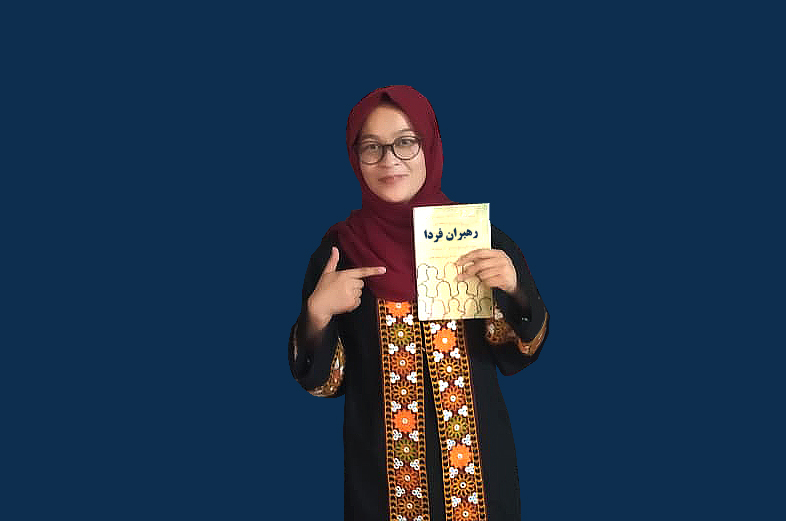
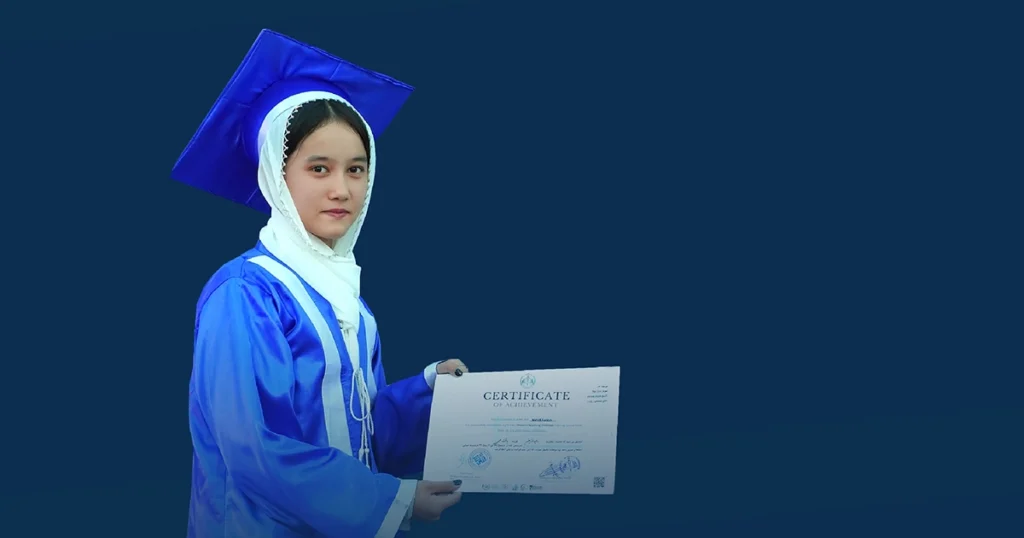
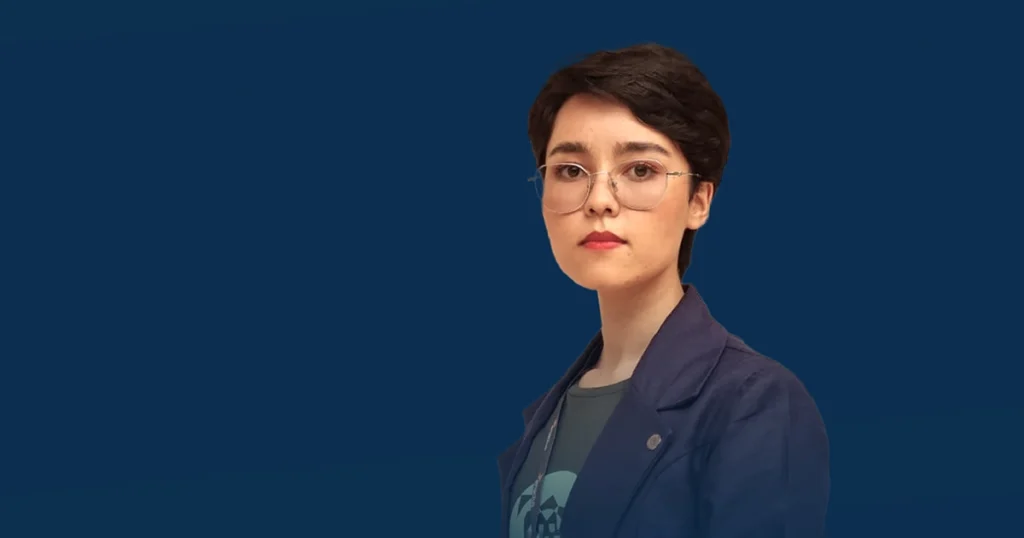
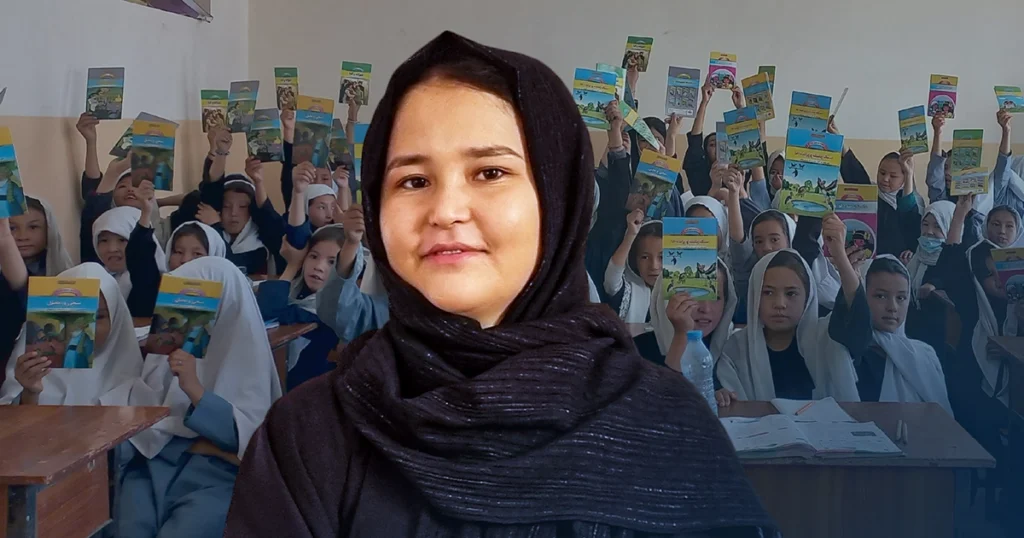
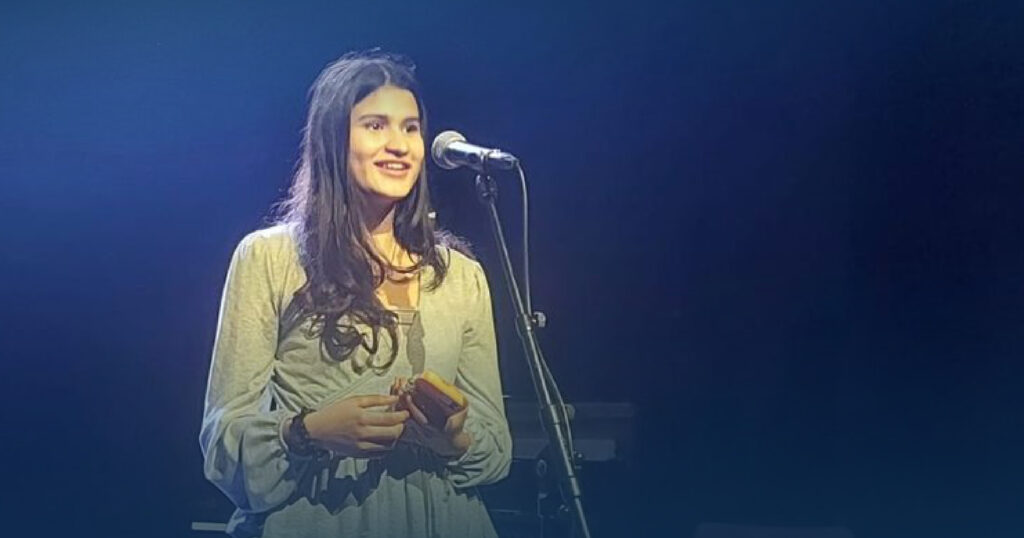

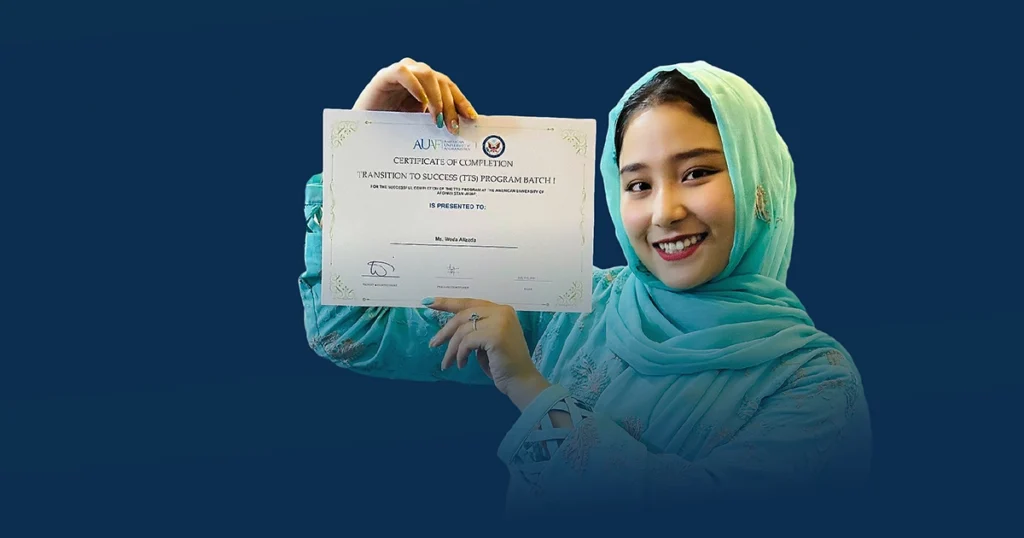

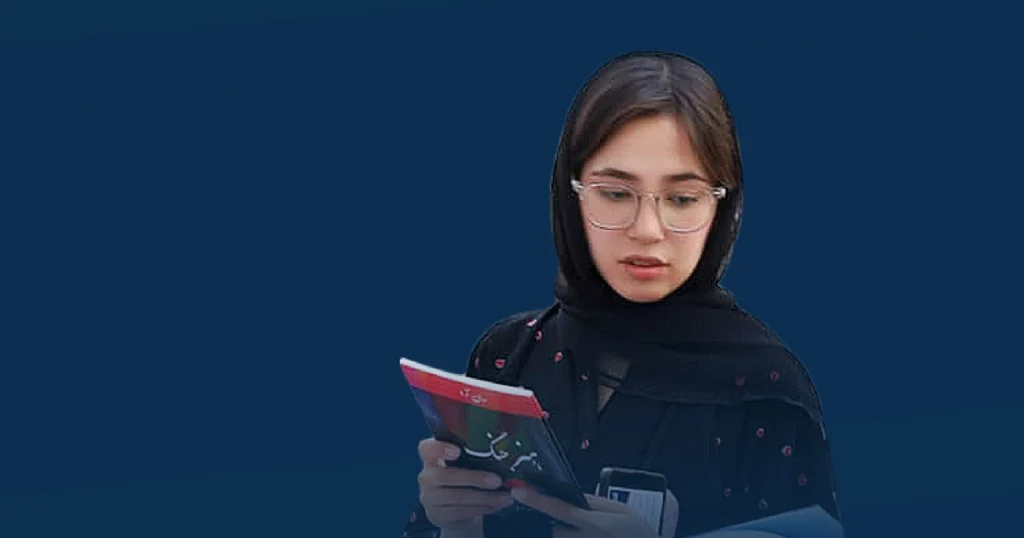
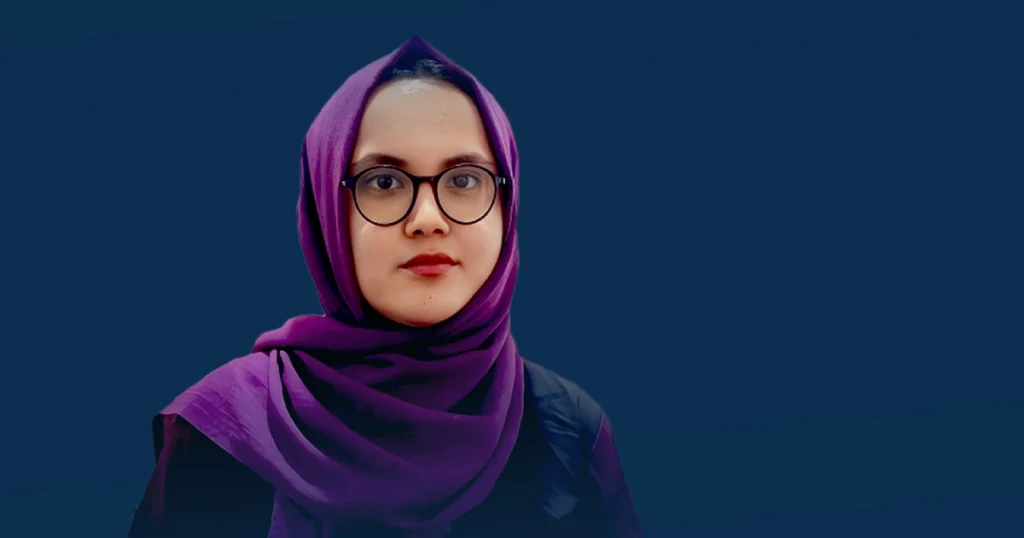
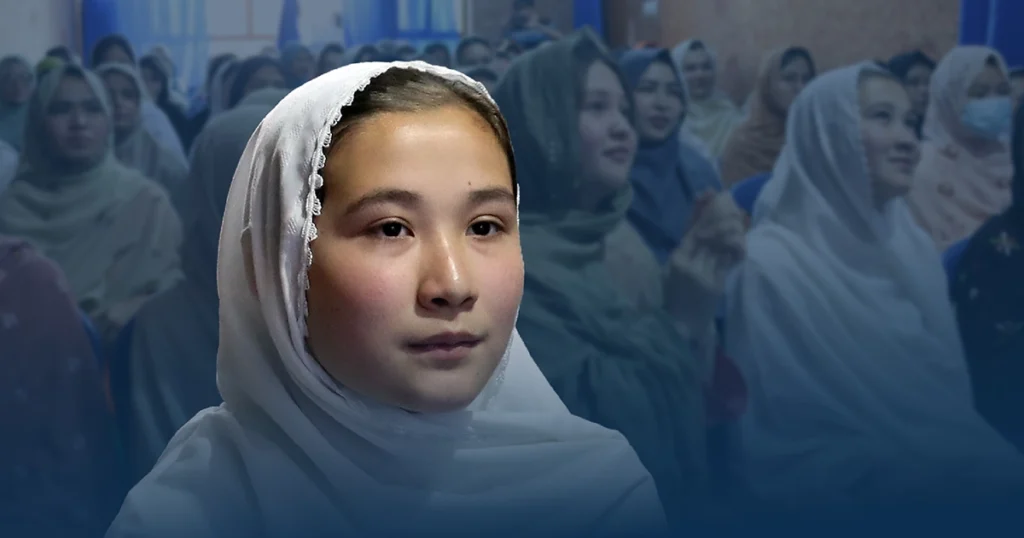
Comments (0)
Leave a Comment